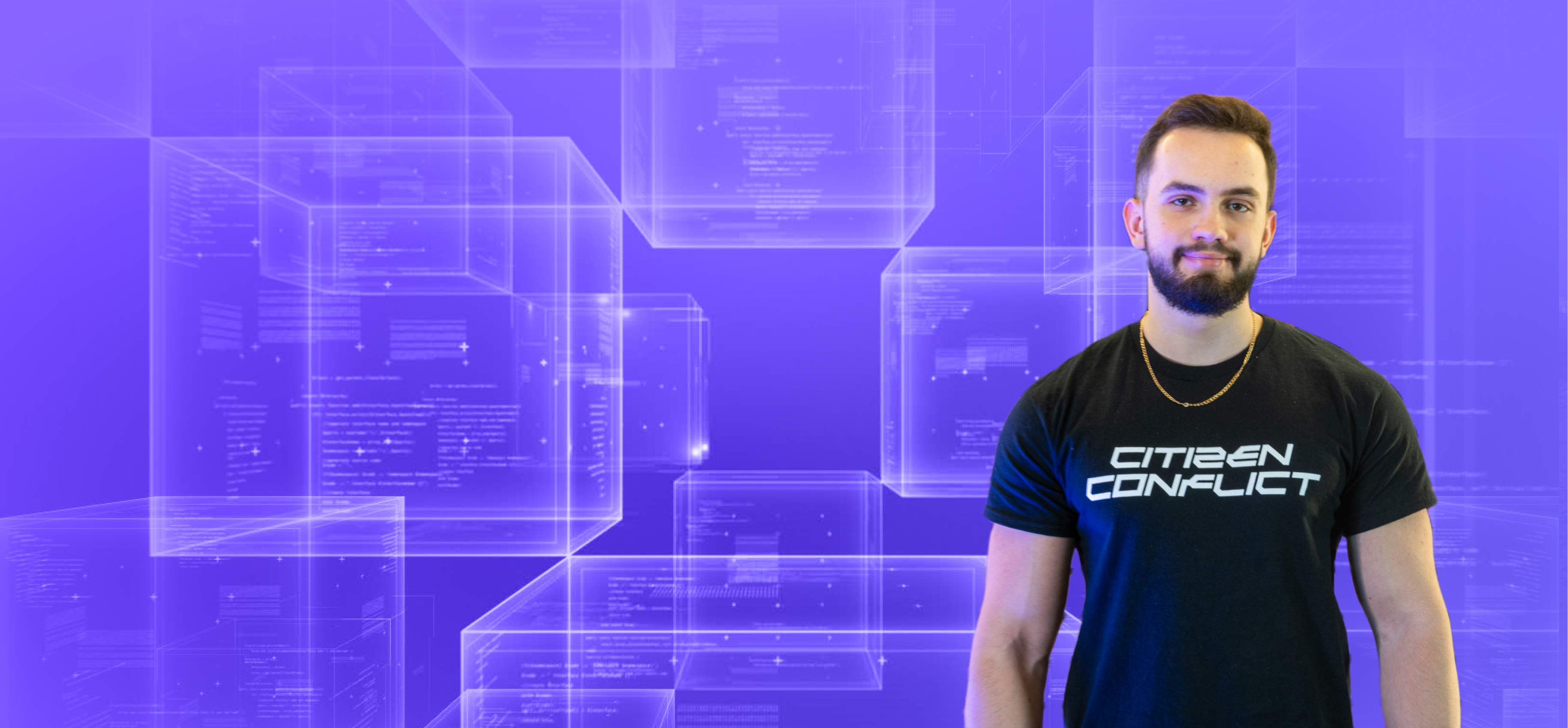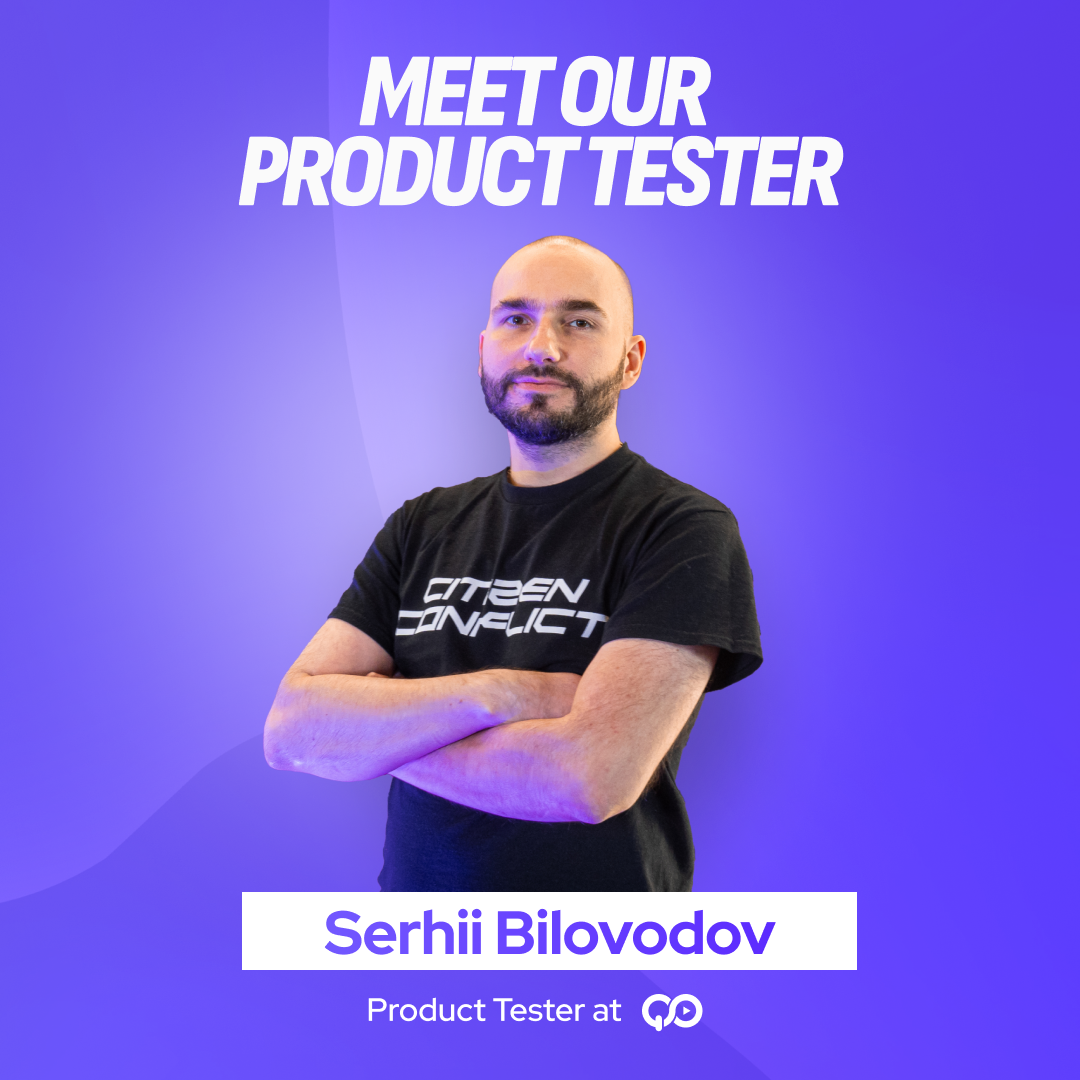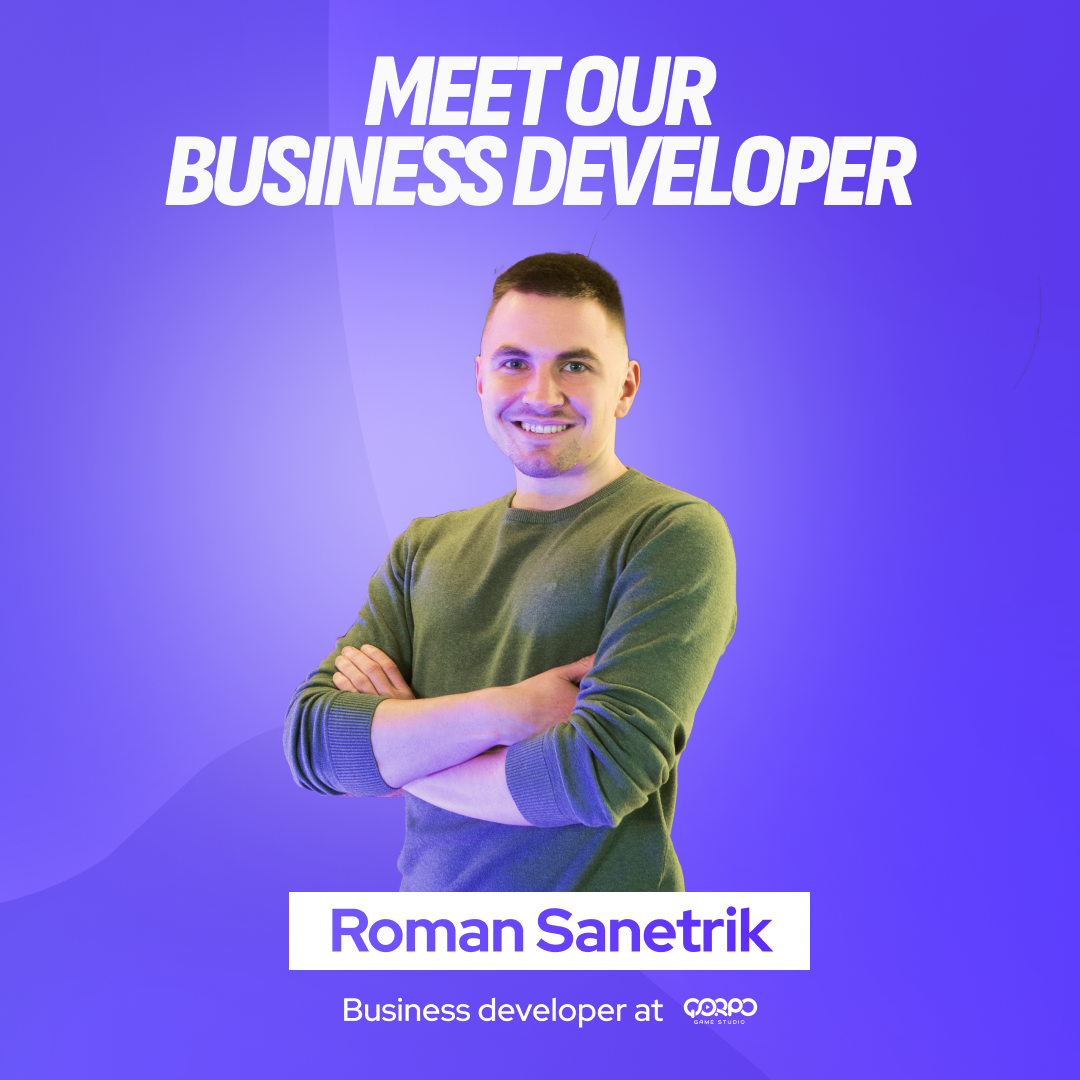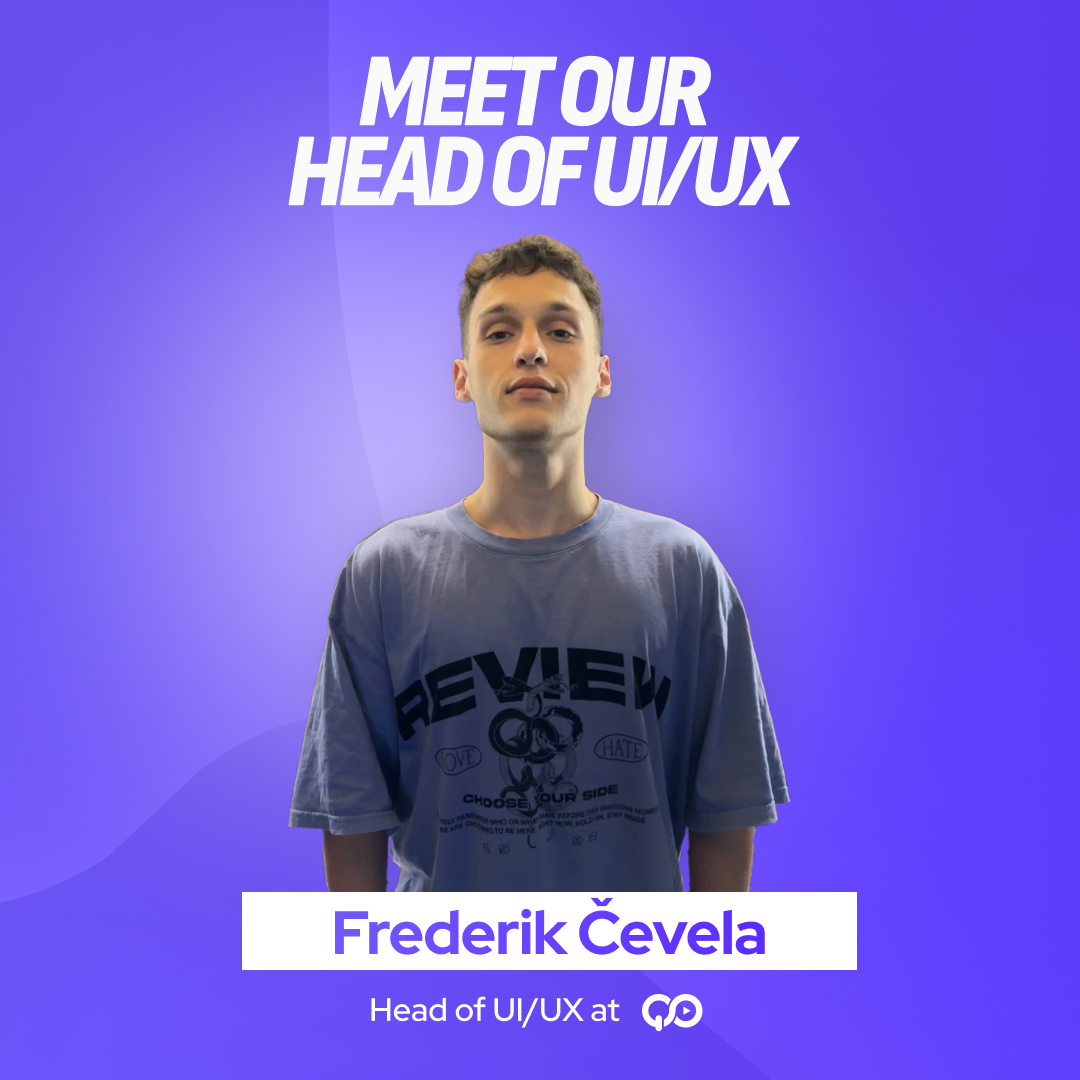As a primarily blockchain game development company, we need skillful developers who know their way with blockchain. What are the differences between programming on blockchain and in Web2? What's it like to be a developer at gaming company? Meet our blockchain specialist and backend developer, Adam Prisenznak. Let's get to know him and the insights he shared with us.
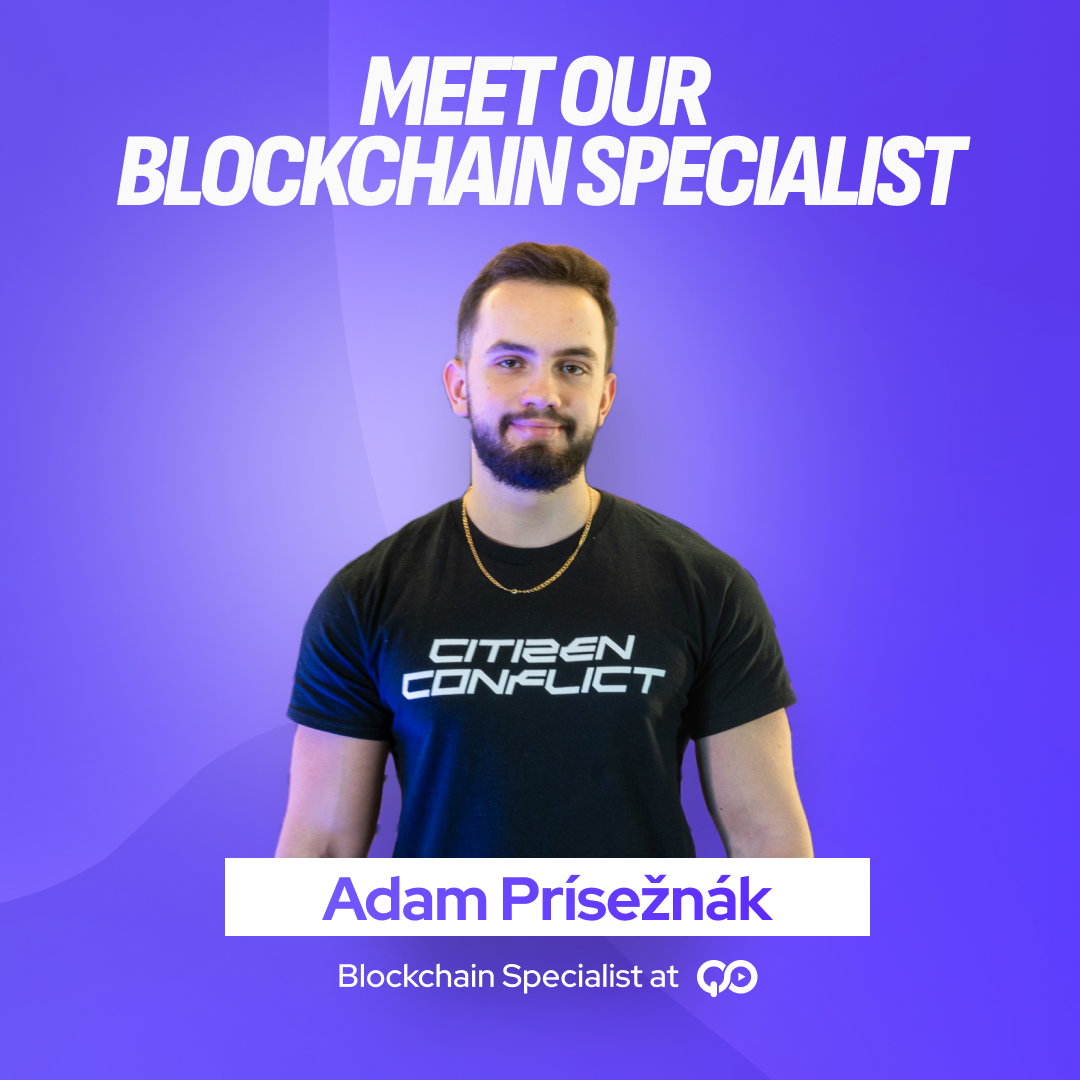
Hi! What made you decide to start programming?
I’ve been doing this since my high school. I attended an IT-specialized high school since I was inspired by my cousin. We were very close back then, and he encouraged me to go this way. He recommended I start with some courses to begin with, you know, the basics, such as HTML, CSS, and JavaScript - a holy trinity of the front end. As I progressed through school, I found out that programming can be entertaining, and I’m enjoying doing it.
But as time passed, I realized that I was not the right fit for the front end. I’m not into the creative stuff, I wasn’t enjoying the styling and coloring; therefore, I refocused on the backend. My experiments began with some PHP, C, and Python. I soon realized that this was the right way for me.
Did you have some specialization throughout your high school years, or was it rather a general study?
Luckily, I was able to get the first freelance gigs right off the bat. I freelanced together with my friend - he was doing the front end, and I specialized in the back end. We have done several websites like this. It was great to have hands-on experience from the very beginning. We have done a bunch of webs together, and it unlocked a lot of doors later on because right after finishing high school, I was able to enroll in University and simultaneously work full time. That’s how I got into QORPO Game Studio almost three years ago.
What was it like to start University studies along with a full-time job?
I always wanted to continue IT studies at University, that’s why I chose to go to Bratislava’s Faculty of Information Technology, yet I wanted to put my knowledge to practice, and so-called real-world experience is the best thing to do so. And actually, it was our front-end developer, Kornel, who got me here. We know each other from high school, and by that time, he was already working here. So he encouraged me to apply, I did, and here I am - soon to be three years in the game.
Did you have ambitions to at game development prior to joining QORPO, or was it just a coincidence?
Not really. Although I have always been playing games, especially survival genre used to be my favorite, and a game called Rust is by far my most played game, I never considered game development as a career option.
It just emerged as a good option for me at the time being, so I joined. And you know what? From the backend development perspective, there are barely any differences between game development and usual web or app development. When you work as a backend developer at a game studio, you barely notice that you’re developing games. Since Unreal stores everything on its own servers, the differences are minimal. The only thing that different about this role stems from the tasks themselves. Unlike web developers for instance, I’m working on tasks related to gaming, such as creating a leaderboard and particular game mechanics.
What was one of the first projects you worked on here?
When I came here, there was barely any job for another backend developer, funnily. So, I was assigned to work with Kornel on frontend tasks, especially new websites. It was later on that work for a junior backend developer emerged; it came at the beginning of the CyberTrade project, an early stage of what we know today as Citizen Conflict. And it was great. I already got a chance to work on something I wanted to work on. Yet still, it came with several challenges. I had to quite quickly jump onto a project that was hot under development with little to no onboarding process and barely any specification provided. There was barely any documentation at the time. Later on, I moved to blockchain development specifically. Right now, I am working on integrations of our products with blockchain
Let’s specify the differences between a typical Web2 development and working with blockchain.
The first things to realize are the basics of how does the blockchain works. It’s decentralized, which means that unlike in traditional Web2 development, you’re stripped of centralized databases where all the data is stored. In Web3, this database is replaced by the blockchain, where you can transfer and store the data. The problem is that the entire blockchain technology is in quite early stages, and the entire infrastructure feels a bit incmplete.
Besides some flaws, there’s barely any comprehensive documentation, so once again, not seldom you’re left with the experimenting and guesswork. In traditional programming, all libraries are well-documented and tested over time with no flaws. Blockchain libraries are completely the opposite experience. From these perspectives, you can say that blockchain development is much more difficult.
How does the work across multiple blockchains differ?
You know, concerning the blockchain we work with, specifically Ethereum, Polygon, and BSC, there are barely any differences. All three of them operate on the same principle, namely EVM (Ethereum Virtual Machine) so that you can use the same libraries. It would be much more difficult if you wanted to go with some different blockchains which are not based on the same core.
Do you want to further pursue a blockchain development career in future?
Sure. I really like it and I see its potential in future. What I’m really happy about is the fact that I can specialize in blockchain in my studies despite its early stage. Actually, my bachelor’s thesis is focused on the topic of blockchain.
